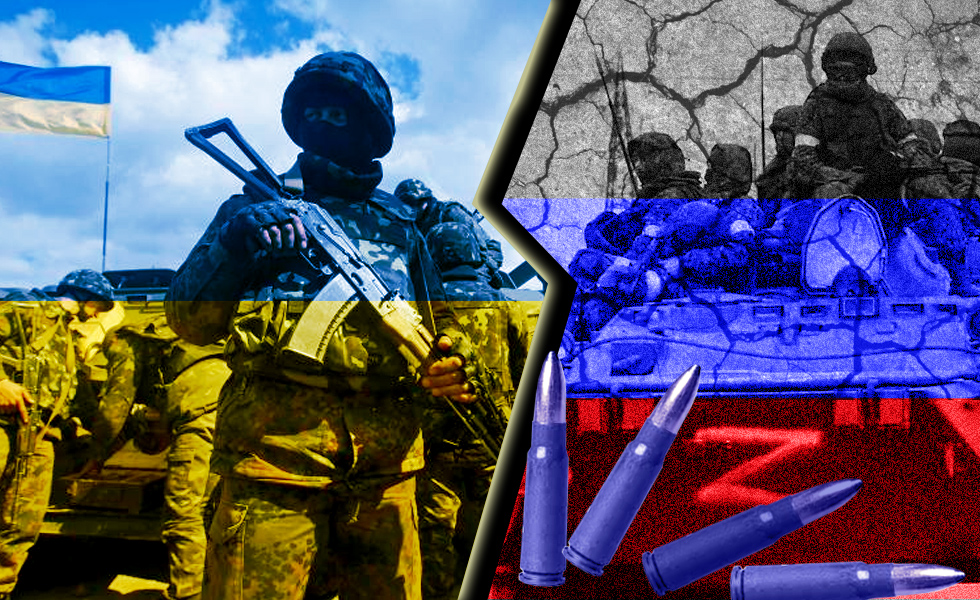Four Factors Making Russia's Ultimate Defeat in the War with Ukraine Inevitable

Over time, Russia will be forced to withdraw from all occupied Ukrainian territories, including Crimea. Its nuclear potential is no guarantee of success. The strength and unity of the Ukrainian resistance has destroyed the myth of Russia's military invincibility. In addition, Russia's war in Ukraine has worsened China-Russia relations, according to Chinese expert and Peking University professor Feng Yujun, writes The Economist.
According to him, four main factors will influence the course of the war.
Firstly, the level of resistance and national unity demonstrated by Ukrainians, which has been extraordinary so far.
Secondly, it is the international support for Ukraine, which, although it has not met the country's expectations recently, remains broad.
The third factor is the nature of modern warfare, a contest that involves a combination of industrial power and command, control, communications and intelligence systems. One of the reasons why Russia could not participate in this war is that it has not yet recovered from the sharp deindustrialisation it suffered after the collapse of the Soviet Union.
The fourth factor is information. When it comes to decision-making, Putin is trapped in an information cocoon because he has been in power for so long. Putin and his national security team do not have access to accurate intelligence. The system they run lacks an effective mechanism for correcting mistakes. Their Ukrainian counterparts are more flexible and efficient.
Taken together, these four factors make Russia's ultimate defeat inevitable. Over time, it will be forced to withdraw from all occupied Ukrainian territories, including Crimea.
Although the war was very costly for Ukraine, the strength and unity of its resistance destroyed the myth of Russia's military invincibility.
The war was a turning point for Russia. It put the Putin regime in widespread international isolation. It has also had to deal with complex domestic political undercurrents, from the uprising of mercenaries from the Wagner group and other military pockets, such as in Belgorod, to ethnic tensions in several Russian regions and the recent terrorist attack in Moscow. This shows that the political risk in Russia is very high.
Russia's war in Ukraine has convinced a growing number of former Soviet republics that Russia's imperial ambitions threaten their independence, sovereignty and territorial integrity. Increasingly aware that Russia's victory is out of the question, these states are distancing themselves from Moscow in a variety of ways, from formulating economic development policies that are less dependent on Russia to pursuing more balanced foreign policies. As a result, the prospects for Eurasian integration, as advocated by Russia, have dimmed.
Meanwhile, the war has made Europe realise the real threat posed by Russia's military aggression to the continent's security and international order, putting an end to the post-Cold War détente between the EU and Russia. Many European countries have abandoned their illusions about Putin's Russia.
At the same time, the war has brought NATO out of what French President Emmanuel Macron has called a "brain-dead" state. With most NATO countries increasing their military spending, the alliance's forward military deployment in Eastern Europe has been significantly strengthened. The accession of Sweden and Finland to NATO has accelerated the expansion of the alliance.
The war will also help change the UN Security Council and accelerate its reforms. Germany, Japan, India and other countries are likely to become permanent members, and the five current permanent members may lose their veto power.
Since the beginning of the war, China has conducted two rounds of diplomatic mediation. Success has proved elusive, but no one should doubt China's desire to bring this brutal war to a negotiated end. This desire shows that China and Russia are very different countries.
In the absence of fundamental changes in Russia's political system and ideology, the conflict could become frozen. This will only allow Russia to continue to launch new wars after a respite, putting the world in even greater danger.